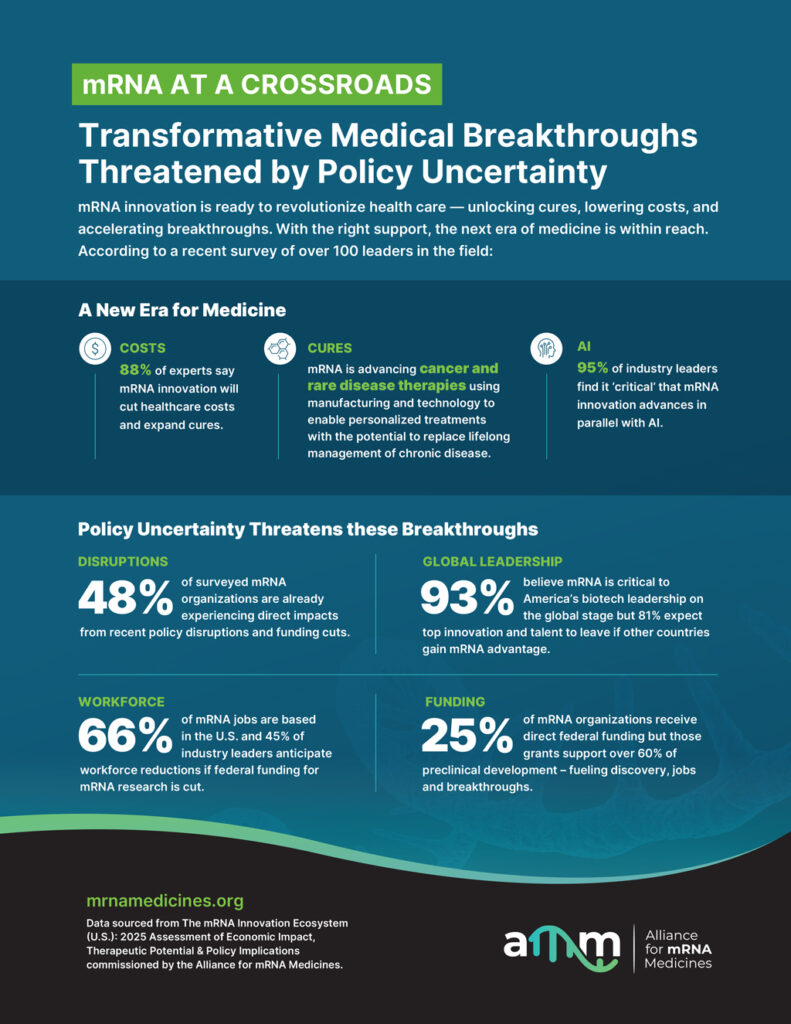
AMM is the preeminent source of mRNA studies and data. In addition to publishing original research on the state of mRNA worldwide, we serve as an aggregator of the latest studies from the field. Explore below to learn more about recent advancements in mRNA technology.

Featured Study
A new survey commissioned by the Alliance for mRNA Medicines warns that cuts to biomedical research and threats of anti-mRNA policies risk delays to therapeutic advances in cancer, rare diseases, and other diseases, loss of billions in potential healthcare savings, and place US biomedical leadership and national security in the hands of other countries.

Featured Study
Advancing mRNA: Executive Insights and Future Directions explores industry perspectives on the expanding role of mRNA beyond vaccines, highlighting opportunities in oncology, rare diseases, and gene therapy. The study examines investment trends, regulatory challenges, and the future of mRNA therapeutics in medicine.
mRNA-based therapeutics: powerful and versatile tools to combat diseases
The therapeutic use of messenger RNA (mRNA) has fueled great hope to combat a wide range of incurable diseases. Recent rapid advances in biotechnology and molecular medicine have enabled the production of almost any functional protein/peptide in the human body by introducing mRNA as a vaccine or therapeutic agent.
A new study published in Nature by BioNTech, in collaboration with Genentech, demonstrates how an individualized mRNA-based neoantigen vaccine, autogene cevumeran, combined with the PD-L1 inhibitor atezolizumab, induces long-lasting CD8+ T cell responses in pancreatic cancer patients.